Coating
We know that Coating production environments are very demanding, with the need to run continuously at very high speeds.
This demands specialist equipment and in-depth knowhow from the people who design and manufacture it.
With Vetaphone Corona treater coating systems, you can be sure that all your demands for reliability and performance at high-speed will be met, including the challenging specifications required for pull stations. Our Corona systems feature pneumatically activated electrode assemblies that pivot away to allow easy access for webbing up. You can also specify a quick retraction system to protect the electrode cartridge, and this will prolong the electrode’s working lifetime. Trust us to meet challenging specifications for pull stations with our top-notch Corona coating machines.
With Vetaphone Corona treater coating systems, you can be sure that all your demands for reliability and performance at high-speed will be met, including the challenging specifications required for pull stations. Our Corona systems feature pneumatically activated electrode assemblies that pivot away to allow easy access for webbing up. You can also specify a quick retraction system to protect the electrode cartridge, and this will prolong the electrode’s working lifetime. Trust us to meet challenging specifications for pull stations with our top-notch Corona coating machines.
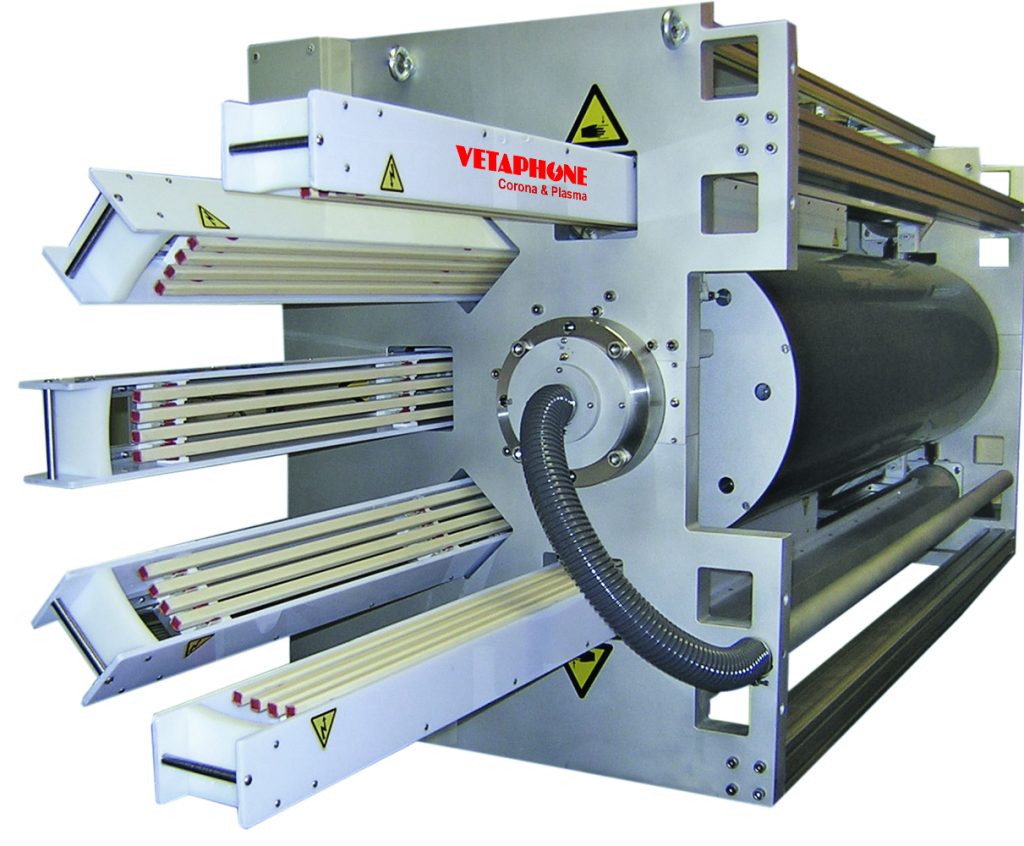
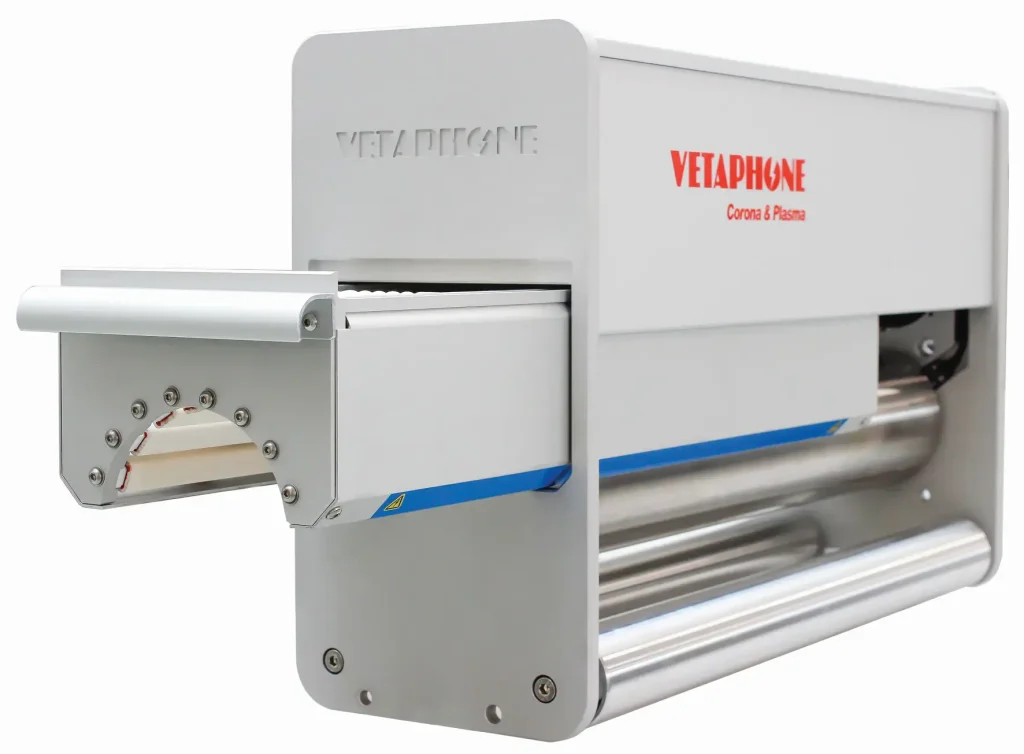
Narrow Web
If you are a Label Printer you will know how important a Quality print job is to your Customers.
But the problem is that some of the substrates you use are plastic or foil based, and both create problems with ink and lacquer adhesion. This is because the surface energy of the material prevents the creation of a proper bond – in simple terms, it doesn’t stick well.
To create the quality of label that you want to sell to your customers requires good preparation, and an essential part of that is Narrow Web Treatment of the surface of the substrate you are using. Vetaphone high-quality Corona systems are accurate and controllable to ensure you are always applying exactly the right level of treatment in a situation where too much is as bad as too little.
Converting
The Corona Surface Treatment is essential in the Printing & Laminating processes.
In the fiercely competitive retail landscape, the significance of Corona surface treatment in converting processes cannot be ignored. Brand owners striving to sway consumer preferences recognize that high-quality images and presentation are non-negotiable. In order to achieve the best shelf appeal, packaging quality is vital. This is where converting machine and equipment manufacturers step in, delivering top-notch solutions that ensure premium packaging and elevate a product’s chances of success on the market.
In the realm of packaging conversion, the process of converting involves working with non-absorbent substrates like film, foil, or metallized paper and board. Prior to utilization in inks, varnishes, lacquers, lamination, or other converting techniques, these substrates must undergo surface treatment to ensure a secure adhesion. Achieving a consistently high-quality finish is paramount in this endeavor. For this purpose, converting machinery and web converting equipment play a pivotal role in facilitating the surface treatment process, resulting in impeccable end products.
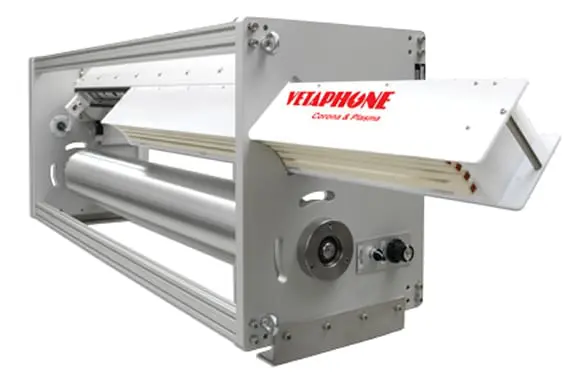
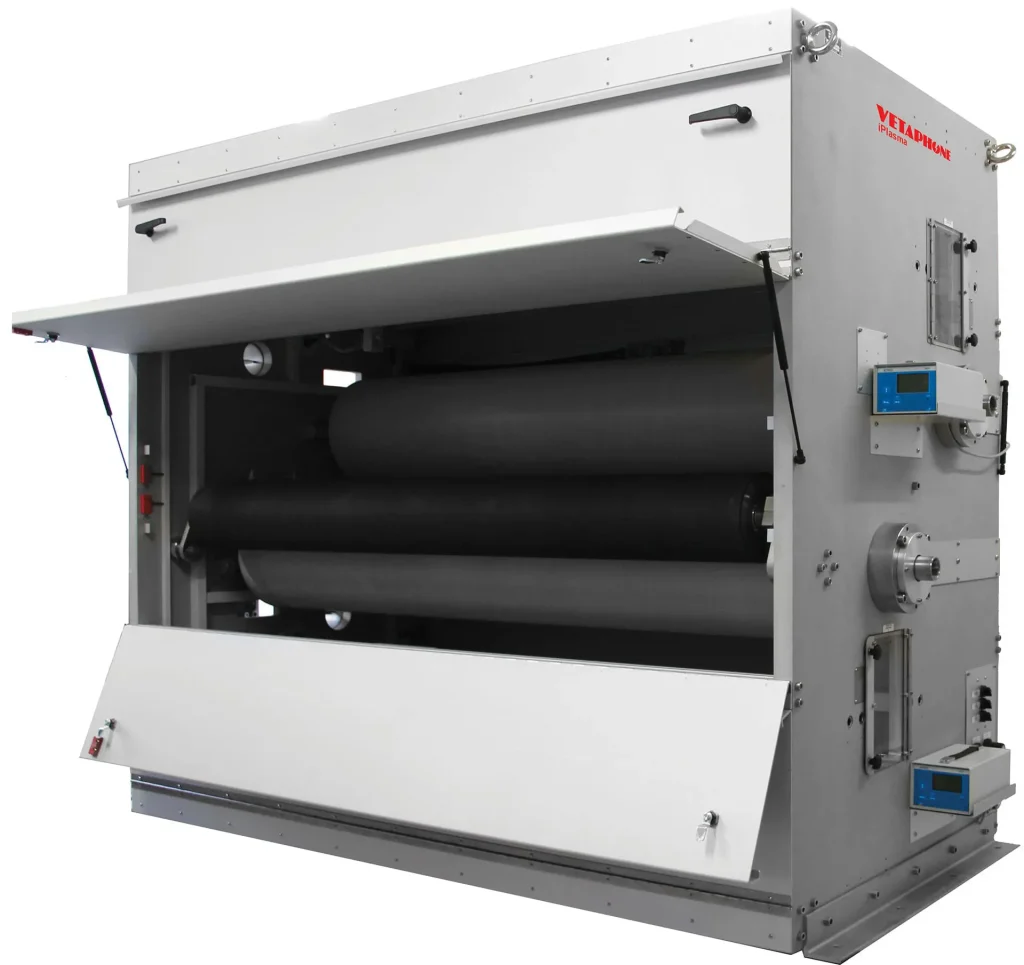
Plasma
Is Plasma a replacement for Corona – No!
This is a question we are often asked, so let us explain what it is, and how it differs.
In 95% of cases, Corona treatment of a substrate is still the perfect way to improve surface adhesion and deliver a first-class product. By modifying the surface energy of a non-absorbent material, like film or foil, Corona treatment will allow inks, lacquers and laminate film to adhere correctly and uniformly, and produce a quality result.
But, in the remaining 5% of cases, Corona treatment will not work because of the complexity of the chemical make-up of the substrate. And in these situations, Plasma treatment, or as we brand it ‘iPlasma®’, is needed to allow a secure bond. The simple difference is that where the Corona process is carried out in ambient air, iPlasma treatment requires a controlled environment and the use of a dopant gas.
Ozone Eliminators
Ozone eliminators are used for decomposition of ozone produced by Corona treatment or UV-curing. Ozone is toxic, so is harmful to the environment and corrosive in the production department where it can damage any ferrous metal and cause breakdowns that require costly repairs.Vetaphone ozone eliminators are used for decomposition of ozone produced by Corona treatment or UV-curing. Ozone is toxic, so is harmful to the environment and corrosive in the production department where it can damage any ferrous metal and cause breakdowns that require costly repairs.
Our ozone eliminators have a three-stage filtration system and are manufactured in a corrosion-proof casing. The first two filters remove rough and fine particles of dust and grease in the incoming air, and the third filter is an OZC filter that effectively decomposes the ozone through a catalytic process, so that only environmentally safe air is discharged to the atmosphere.
The pre-filters and catalytic filters are easy to change, and the airflow through these filters is measured continuously so that an early warning alarm can be activated before the filters stop working. This leaves plenty of time for ordering replacement filters. The ozone eliminator is made in various sizes to cope with high airflow capacities with maximum input concentrations of 100ppm and typical output concentrations of 0.05ppm.
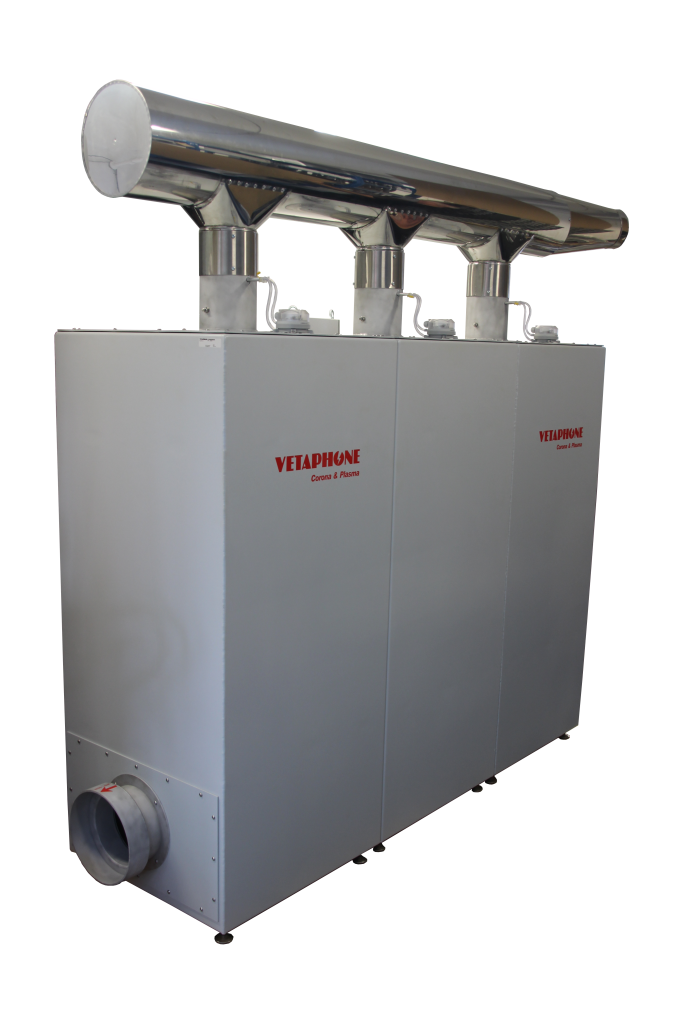
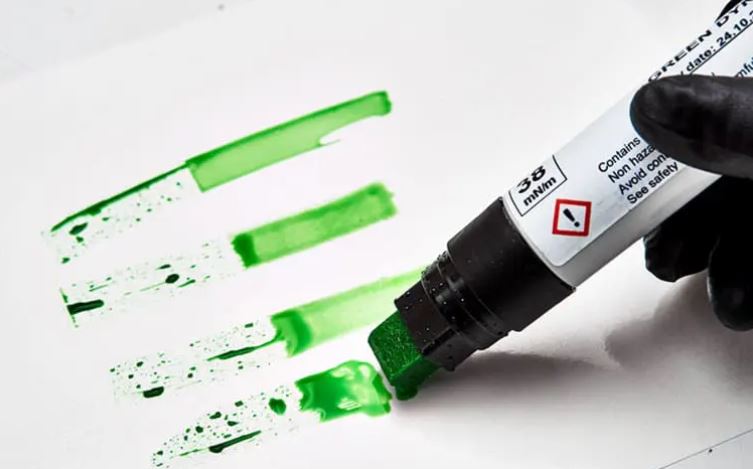
Dyne Pens
The use of a dyne pen is the quickest and easiest way to control that a plastic substrate has sufficient surface tension for printing, coating and laminating processes.
To avoid having to scrap large quantities of substrate with a poor print due to insufficient bonding it is always advisable to check the corona treated material before processing. Using a felt tip dyne pen is an easy and inexpensive way to check if a substrate is ready for processing.
Benefits:
- Reduces production of scrap material
- Quick and reliable test results
- Easy to use
- Inexpensive method
- 3 months durability of dyne pens
Test Lab
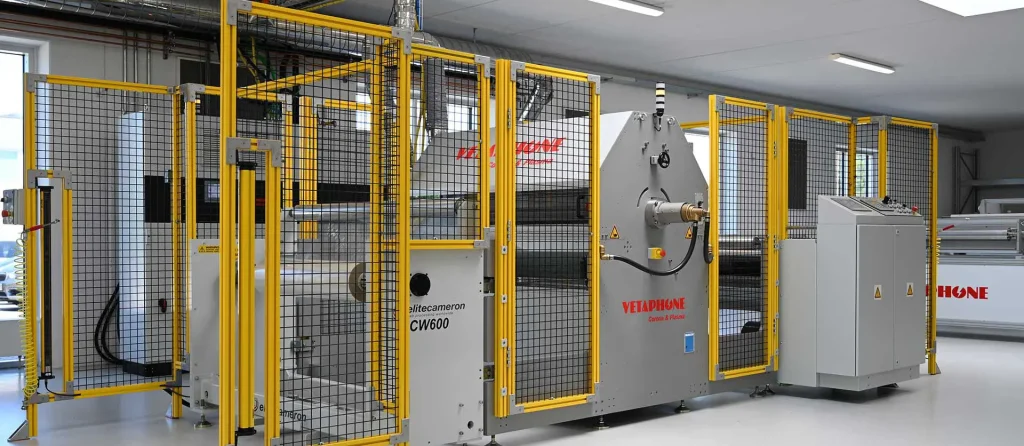
Test Lab Capabilities
Our unique set-up allows us to test with both Corona and Plasma surface treatment. We can test rolls of film, foam, fabrics, metallised foil and paper up to 1300 mm wide and up to 3 mm thick, at a line speed of up to 200 m/min
Testing Equipment
- Contact angle meter – measures surface energy
- Dyne testing – measures surface tension
- Peel test – measures adhesion and delamination force